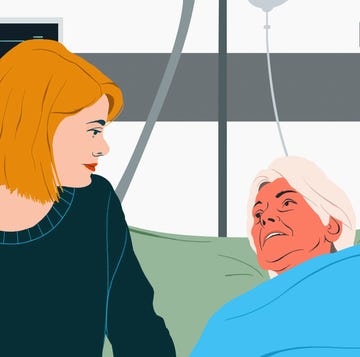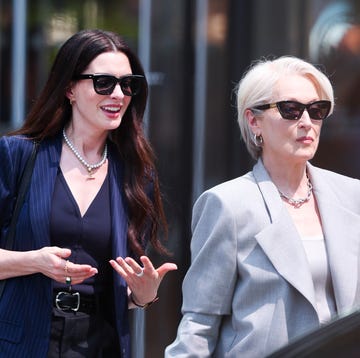Life changes tend to creep up on you slowly, don’t they? And so, perhaps inevitably, it took me a while to realise that my friendship group had, by the time I reached middle age, diminished almost to the point of nonexistence. It was my wife, Elena, who noted this, telling me, ‘You don’t really go out very much any more, or see anyone. What happened to your friends?’
I had made it into midlife with the friendship group I’d had for 20 years or more – people I’d met at school and college and, later, work. Everyone I socialised with liked the same music and the same films, and we shared the same views on everything from river pollution and Brexit to football manager José Mourinho. But the comfort between us was something we took for granted and, over time, no longer needed in quite the same way we once did.
Life was pulling us in different directions. By our late 30s, we’d done all the usual things: moved to the suburbs, got mortgages, had children. I signed up to Netflix, my evenings now dominated by American crime drama, and amid all this, I somehow forgot to be sociable.
I accepted – a little sadly – that this was simply the way of things, and I’d have to get used to it.
Then, in 2015, we got a dog – our first. I had no idea what to expect. I’d always been a cat person, and when I saw the Gumtree ad for a Border terrier puppy costing £600, I thought it was a little steep, to say the least. But I was overruled by the rest of my family and I admit the puppy, who we named Missy, has now proved excellent value for money. Because, although I couldn’t know it then, Missy would lead me into an entirely new social circle – something I didn’t think feasible for a man in his mid-40s.
We live in times of increasing social isolation and loneliness, preferring screens over human interaction – and, as we’re repeatedly told, men are terrible at long-term friendships, anyway. I wasn’t in the habit of talking to people on public transport, or in the queue at the supermarket. But when I took our dog to the small and scruffy park a five-minute walk from home, I found it impossible to avoid communication and, it turned out, community.
A 'mutley' crew
Soon, my afternoon walks began to take shape around four regular characters. There was Elizabeth, a 79-year-old widow with a labradoodle and a kind and gentle disposition, who I came to see almost as a grandmother.
There was Pavlov (owner of a three-legged Staffordshire terrier) – an ageing Russian dissident whose grumpy exterior concealed, in the way of certain Quality Street chocolates, a softer centre.
Then there was Olivia (accompanied by a red setter), a twenty something actor impatiently awaiting her big break while living back at home with her parents. During the summer months, she’d arrive in her leotard and encourage passers-by to do aerobics with her. But my favourite was Agatha (a pug owner), a third-generation Caribbean with an infectious
lust for life. Agatha was on her second divorce, and gleefully turned her disastrous dating
life into humorous fodder for dog-walking chat.
We were a disparate bunch, my dog-walking crew and me: young and old, with various
social backgrounds and levels of mobility, different creeds, ethnicities and religions. Still, we became a gang of sorts, bound by a communal requirement: exercising our animals. If we never met up beyond the park’s perimeter gate, it’s because we didn’t feel the need to
– each of us had our own separate lives, after all.
But within the gates, we were tight. Together, we’d walk into a thousand suburban sunsets, talking about everything and nothing. We discussed the war in Ukraine, and where we thought we go when we die. We shared our favourite crisp flavours, and mused on how to pronounce ‘hummus’.
Help in unexpected places
One day, we encountered a meek woman who arrived at the park and seemed lost and in distress. Agatha and Olivia, the group’s alphas, introduced themselves. Over the following weeks, through gentle conversation, we learned that the woman had been trafficked into the country to work as a cleaner for abusive employers. She claimed that her phone and passport had been confiscated, and that she was never paid.
The family she worked for had acquired puppies they were too disinterested to look after. So she was required to walk them, under orders not to speak to anyone while doing so.
Few people, however, can ignore Agatha for very long, and so our daily amble suddenly
developed the plotline of a TV drama: assist in her escape, then take her to a place of notional safety. We got her to a charity on the other side of town that specialised in such cases and they helped her start afresh. The cliché is true: dog walkers do manage to get themselves into all sorts of situations.
Canine marriage counselling
Missy worked her curious canine magic on the home front, too, specifically between Elena and me. As our daughters grew into teenage independence, the weekends reverted to being ours alone. Over the years, consumed by the monumental task of raising children, we’d drifted apart. When Elena suggested couples therapy, I panicked, but the solution turned out to be much simpler.
Each Saturday and Sunday morning we’d use our newfound parental freedom to take Missy to larger parks, or nearby woodland, where she’d run free while we did something we hadn’t done for the longest time: talk uninterrupted. Here, we’d get to know one another again, and we reminded ourselves why we’d fallen in love in the first place.
The continued presence of that love was a relief and a balm. And we’d rediscovered this all because of a small Border terrier.
Worth her weight in gold
Of course, Missy has also woken us up countless times in the middle of the night like a teething toddler. She’s even given us fleas. She has terrible breath, and I’ve vivid memories of poo-bag malfunctions I’d rather not recall in any detail. But she’s also been the very best company and has made my small world big again through the connections she’s helped me both forge and revive. For that, I’m eternally grateful.
I’m so glad Missy is always here, at my feet, while I’m typing away at work. I marvel at how she’s somehow intuitively aware that the moment I hit the final full stop, I’ll be finished for the day, and we can go out. There are people waiting for us.
People Who Like Dogs Like People Who Like Dogs by Nick Duerden (published by John Murray) is out now.

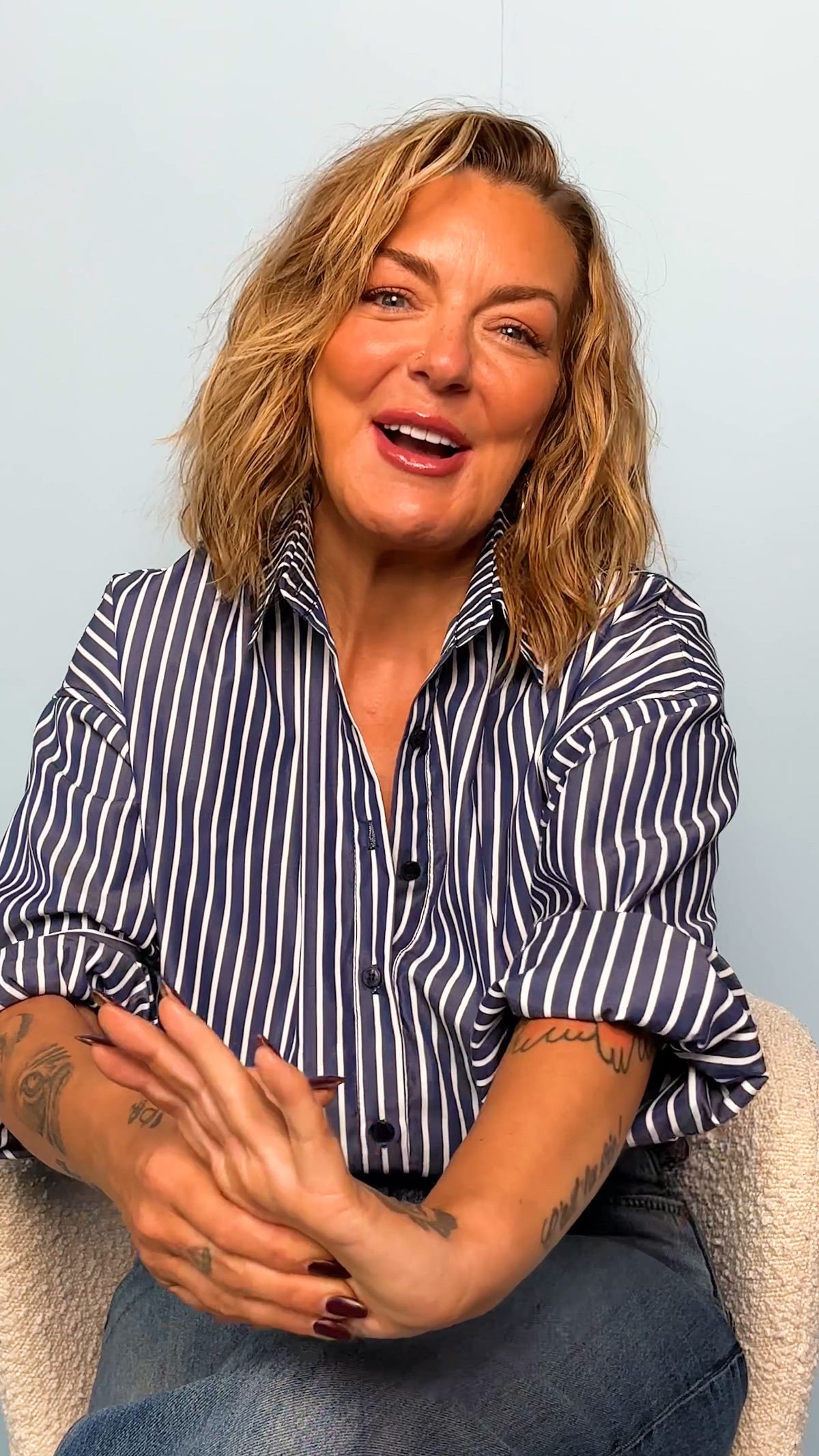
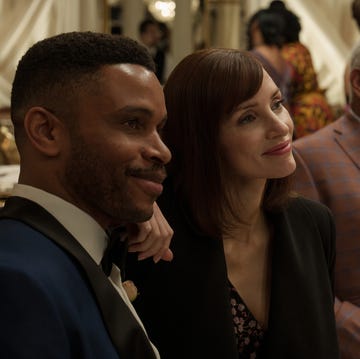
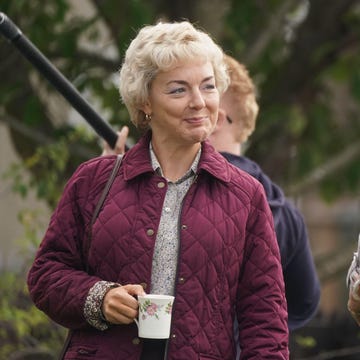

![©ITV from monumental television frauds sr1pictured: jodie whittaker as sam suranne jones as bert this photograph is (c) itv plc/ monumental television and can only be reproduced for editorial purposes directly in connection with the programme or event mentioned above, or itv plc. this photograph must not be manipulated [excluding basic cropping] in a manner which alters the visual appearance of the person photographed deemed detrimental or inappropriate by itv plc picture desk. this photograph must not be syndicated to any other company, publication or website, or permanently archived, without the express written permission of itv picture desk. full terms and conditions are available on the website www.itv.com/presscentre/itvpictures/termsfor further information please contact:michael.taiwo1@itv.com](https://hips.hearstapps.com/hmg-prod/images/frauds-sr1-first-look-03-6891d81c2d536.jpg?crop=0.428xw:0.643xh;0.0641xw,0.116xh&resize=360:*)




